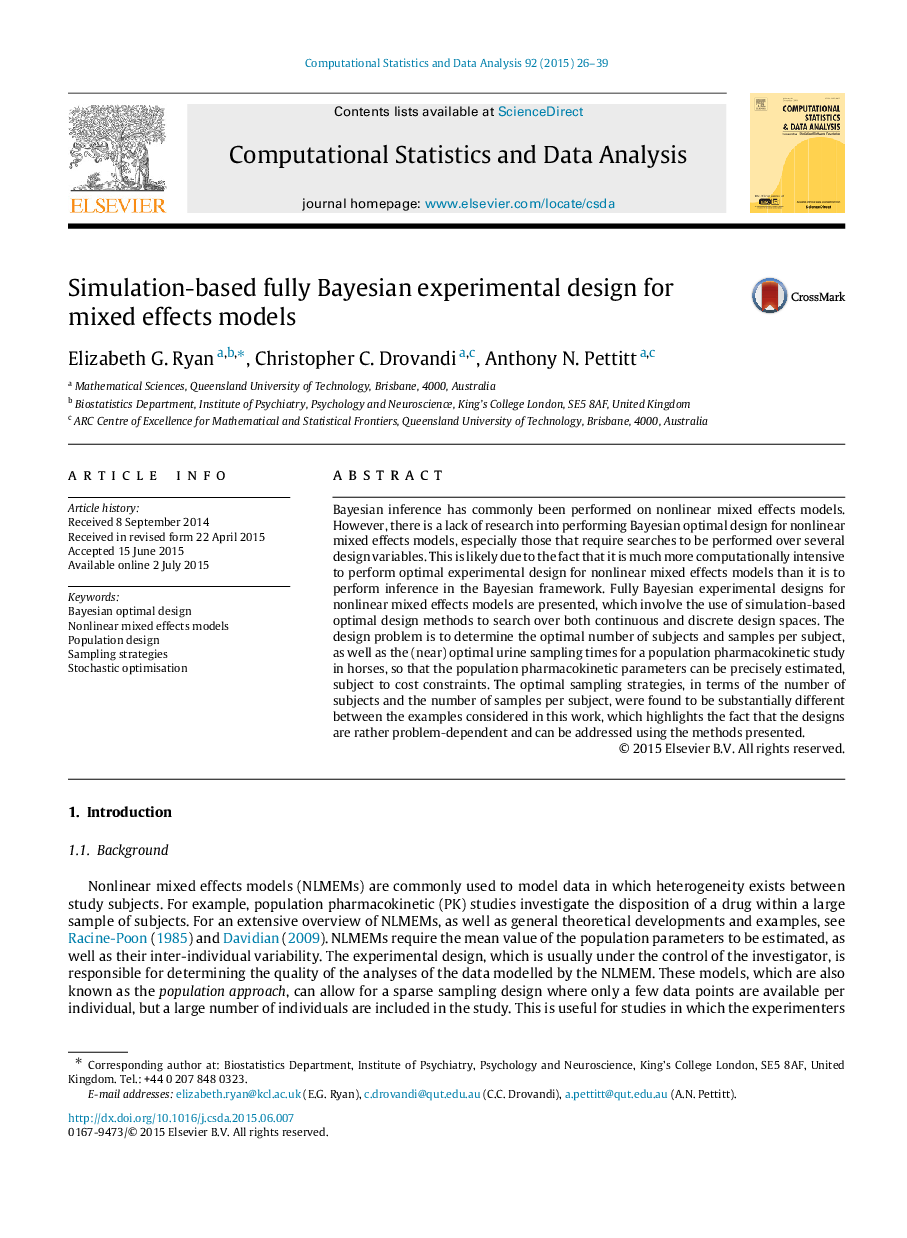| Article ID | Journal | Published Year | Pages | File Type |
|---|---|---|---|---|
| 416416 | Computational Statistics & Data Analysis | 2015 | 14 Pages |
Bayesian inference has commonly been performed on nonlinear mixed effects models. However, there is a lack of research into performing Bayesian optimal design for nonlinear mixed effects models, especially those that require searches to be performed over several design variables. This is likely due to the fact that it is much more computationally intensive to perform optimal experimental design for nonlinear mixed effects models than it is to perform inference in the Bayesian framework. Fully Bayesian experimental designs for nonlinear mixed effects models are presented, which involve the use of simulation-based optimal design methods to search over both continuous and discrete design spaces. The design problem is to determine the optimal number of subjects and samples per subject, as well as the (near) optimal urine sampling times for a population pharmacokinetic study in horses, so that the population pharmacokinetic parameters can be precisely estimated, subject to cost constraints. The optimal sampling strategies, in terms of the number of subjects and the number of samples per subject, were found to be substantially different between the examples considered in this work, which highlights the fact that the designs are rather problem-dependent and can be addressed using the methods presented.
